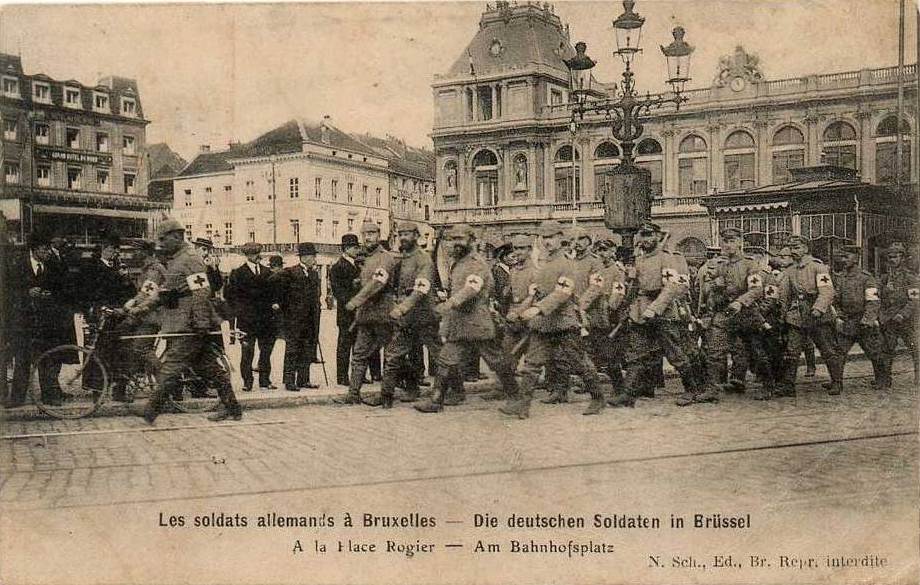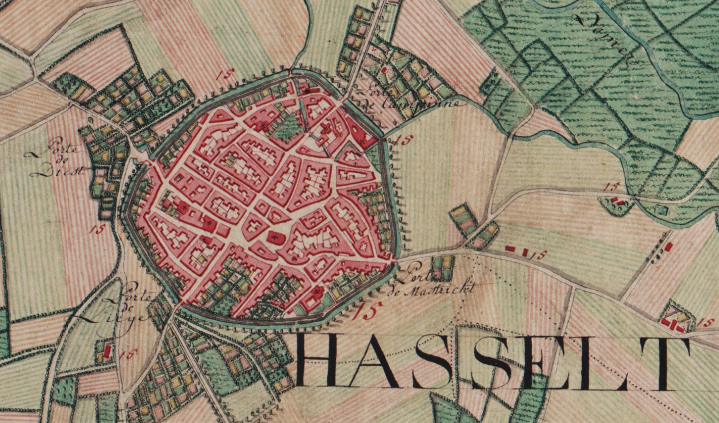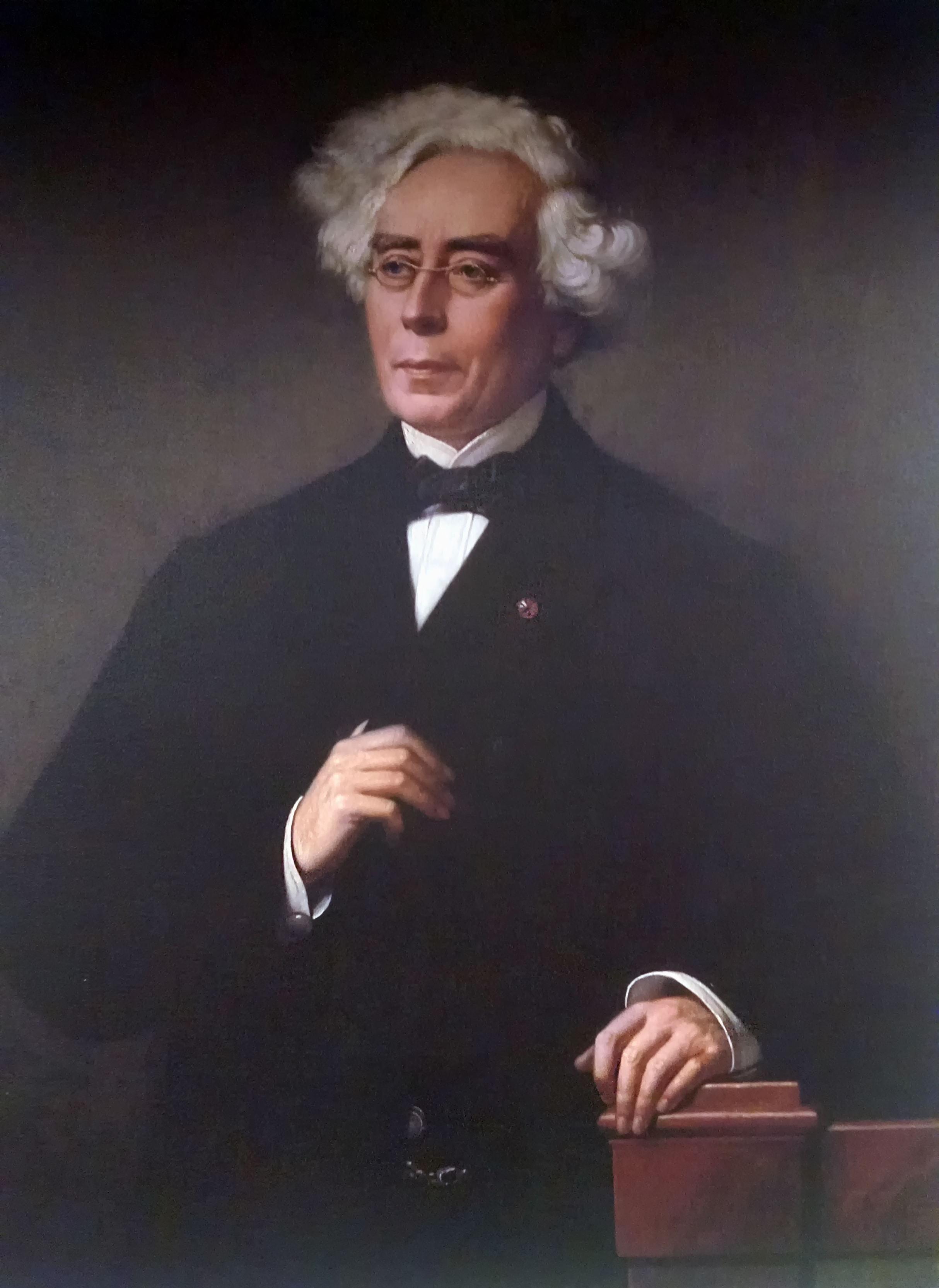|
Martin-Hubert Rutten
Martin-Hubert Rutten (1841–1927), was a bishop of Liège. Life Rutten was born in Geistingen, in the Belgian province of Limburg, on 18 December 1841, and was educated at the minor seminary in Sint-Truiden and the Diocesan Seminary of Liège. A. Simon, "Rutten (Martin-Hubert)", ''Biographie Nationale de Belgique''vol. 31(Brussels, 1961), 659-664. He was ordained to the priesthood on 28 April 1867, and taught mathematics at the minor seminary of Saint-Roch (Ferneres) from 1868, becoming director of the school in 1873. In 1875 he was appointed an honorary canon, in 1878 rector of the minor seminary in Sint-Truiden, and in 1879 president of the diocesan seminary and vicar general of the Roman Catholic Diocese of Liège. In 1888 he became dean of the cathedral chapter in Liège, and on 26 August 1901 was named bishop. His appointment was supported by Leopold II of Belgium, who saw him as a man who would combat the growth of Christian democracy in Liège. Unlike his predecessor, he ... [...More Info...] [...Related Items...] OR: [Wikipedia] [Google] [Baidu] |
Bishop Of Liège
A bishop is an ordained clergy member who is entrusted with a position of authority and oversight in a religious institution. In Christianity, bishops are normally responsible for the governance of dioceses. The role or office of bishop is called episcopacy. Organizationally, several Christian denominations utilize ecclesiastical structures that call for the position of bishops, while other denominations have dispensed with this office, seeing it as a symbol of power. Bishops have also exercised political authority. Traditionally, bishops claim apostolic succession, a direct historical lineage dating back to the original Twelve Apostles or Saint Paul. The bishops are by doctrine understood as those who possess the full priesthood given by Jesus Christ, and therefore may ordain other clergy, including other bishops. A person ordained as a deacon, priest (i.e. presbyter), and then bishop is understood to hold the fullness of the ministerial priesthood, given responsibility by ... [...More Info...] [...Related Items...] OR: [Wikipedia] [Google] [Baidu] |
Biographie Nationale De Belgique
The ''Biographie nationale de Belgique'' ( French; "National Biography of Belgium") is a biographical dictionary of Belgium. It was published by the Royal Academy of Belgium in 44 volumes between 1866 and 1986. A continuation series, entitled the ''Nouvelle Biographie Nationale'' ("New National Biography"), has been published by the Royal Academy of Science, Letters and Fine Arts of Belgium since 1988. Both the ''Biographie nationale'' and ''Nouvelle biographie nationale'' were digitised by the Fonds InBev-Baillet Latour and can be freely consulted at the Academy's website. A parallel biographical dictionary has been produced in Dutch since 1964, entitled the ''Nationaal Biografisch Woordenboek'' ("National Biographical Dictionary"). It places more emphasis on figures important to the history and culture of Flanders and is published by the Royal Flemish Academy of Belgium for Science and the Arts (with the co-operation of the Royal Academy of Dutch language and literature and the R ... [...More Info...] [...Related Items...] OR: [Wikipedia] [Google] [Baidu] |
Belgium In World War I
The history of Belgium in World War I traces Belgium's role between the German invasion in 1914, through the continued military resistance and occupation of the territory by German forces to the armistice in 1918, as well as the role it played in the international war effort through its African colony and small force on the Eastern Front. Background German invasion When World War I began, Germany invaded neutral Belgium and Luxembourg as part of the Schlieffen Plan, in an attempt to capture Paris quickly by catching the French off guard by invading through neutral countries. It was this action that technically caused the British to enter the war, as they were still bound by the 1839 agreement to protect Belgium in the event of war. On 2 August 1914, the German government demanded that German armies be given free passage through Belgian territory, although this was refused by the Belgian government on 3 August. King Albert I addressed his Parliament on 4 August, saying "Ne ... [...More Info...] [...Related Items...] OR: [Wikipedia] [Google] [Baidu] |
German Occupation Of Belgium During World War I
The German occupation of Belgium (french: link=no, Occupation allemande, nl, Duitse bezetting) of World War I was a military occupation of Belgium by the forces of the German Empire between 1914 and 1918. Beginning in August 1914 with the invasion of neutral Belgium, the country was almost completely overrun by German troops before the winter of the same year as the Allied forces withdrew westwards. The Belgian government went into exile, while King Albert I and the Belgian Army continued to fight on a section of the Western Front. Under the German military, Belgium was divided into three separate administrative zones. The majority of the country fell within the General Government, a formal occupation administration ruled by a German general, while the others, closer to the front line, came under more repressive direct military rule. The German occupation coincided with a widespread economic collapse in Belgium with shortages and widespread unemployment, but also with a ... [...More Info...] [...Related Items...] OR: [Wikipedia] [Google] [Baidu] |
Hasselt
Hasselt (, , ; la, Hasseletum, Hasselatum) is a Belgian city and municipality, and capital and largest city of the province of Limburg in the Flemish Region of Belgium. It is known for its former branding as "the city of taste", as well as its local distelleries of Hasselt jenever (gin), the Hasselt Jenever Festivities, Limburgish pie and the Hasselt speculaas. The municipality includes the original city of Hasselt, plus the boroughs of Sint-Lambrechts-Herk, Wimmertingen, Kermt, Spalbeek, Kuringen, Stokrooie, Stevoort and Runkst, as well as the hamlets and parishes of Kiewit, Godsheide and Rapertingen. On 01 July 2022 Hasselt had a total population of 80,260 (39,288 men and 40,972 women). Both the Demer river and the Albert Canal run through the municipality. Hasselt is located in between the Campine region, north of the Demer river, and the Hesbaye region, to the south. On a larger scale, it is also situated in the Meuse-Rhine Euroregion. History Hasselt was founded in a ... [...More Info...] [...Related Items...] OR: [Wikipedia] [Google] [Baidu] |
Het Belfort
''DW B'' is the oldest literary magazine in Flanders that is still in print. It was first published as ''Dietsche Warande en Belfort'', co-founded by Marie-Elisabeth Belpaire, as a merger between two earlier literary magazines, ''Dietsche Warande'' and ''Het Belfort''. ''Dietsche Warande'' had been established in the Netherlands in 1855 by Joseph Albert Alberdingk Thijm, whose brother Paul had moved it to Flanders in 1887. ''Het Belfort'' was founded in 1886 by Jan Bols. The goal for the foundation of these magazines was to provide a forum for (Dutch-language) Flemish authors, who until then rarely published in Dutch magazines; especially Catholic and West-Flemish authors did not feel at home in the Dutch literary milieu of the nineteenth century. DW B is based in Brussels Brussels (french: Bruxelles or ; nl, Brussel ), officially the Brussels-Capital Region (All text and all but one graphic show the English name as Brussels-Capital Region.) (french: link=no, Région de B ... [...More Info...] [...Related Items...] OR: [Wikipedia] [Google] [Baidu] |
Jean-Joseph Thonissen
Jean-Joseph Thonissen (b. Hasselt, Limburg, 21 Jan., 1817; d. Leuven, 17 Aug., 1891) was a professor of law at the Catholic University of Leuven and a minister in the Belgian Government. Legal career Thonissen first performed duties in the magistracy and the administration of Limburg, but was occupied with juridical works on penal law. When dismissed by the Liberal (anti-clerical) ministry, the University of Leuven appointed him in 1848 to the chair of criminal law. In 1863 he was elected to Parliament. Although he achieved his fame in his chosen field of penal law, his writings covered varied points of history and social science, as was evidenced by the fact that in 1886 the national jury of social sciences awarded him the prize. In penal matters he began with commentaries on the penal code and devoted himself especially to the reform of the penal procedure which he advocated while he was minister. He had conceived the vast plan of a history of criminal law, but realized only a pa ... [...More Info...] [...Related Items...] OR: [Wikipedia] [Google] [Baidu] |
First School War
The First School War (french: Première guerre scolaire, nl, Eerste schoolstrijd) was a political crisis in Belgium over the issue of religion in education. The School War marks the high water mark of the conflict between the conservative Catholic Party, and the secular Liberal Party. The war lasted from 1879 to 1884 and resulted in a period of nearly fifty years of Catholic political dominance. It was followed by a Second School War between 1950 and 1959. Background In the preceding centuries, education in Belgium had been dominated by the Catholic Church. In 1842, a new education law formalized religious education in primary schools, while also conceding the freedom of education guaranteed in Article 17 of the Constitution of 1831: Under the terms of Article 6 of the Education Act of 1842: In practice, the interpretation of the law varied and, since the vast majority of the Belgian population was Catholic, the Church was allowed considerable influence in schools. The qualit ... [...More Info...] [...Related Items...] OR: [Wikipedia] [Google] [Baidu] |
Flamingant
The term ''flamingant'', in both Dutch and French, refers to an adherent of the Flemish Movement. Originating as a pejorative term use by Belgian nationalists, it may be equally used as an adjective or substantive and the term ''flamingantisme'' is sometimes used to designate their ideology. The term may be derived from ''Flamins'', the Walloon word for Flemings. The word ''wallingant'' is similarly used to describe adherents of the Walloon Movement which also gives rise to the comparable term ''wallingantisme''. The flamingant movement was originally initiated by the priests in Flanders under the French occupation after 1792. The secular republic invaded the Austrian Netherlands three years later, retaining them until 1815. This was very badly received in the Catholic provinces, alarming the clergy and damaging those economic sectors which were in competition with metropolitan France. Thus all the Walloon vineyards were ruined and the textile sector in Flanders went into dec ... [...More Info...] [...Related Items...] OR: [Wikipedia] [Google] [Baidu] |
Christian Democracy
Christian democracy (sometimes named Centrist democracy) is a political ideology that emerged in 19th-century Europe under the influence of Catholic social teaching and neo-Calvinism. It was conceived as a combination of modern democratic ideas and traditional Christian values, incorporating social justice and the social teachings espoused by the Catholic, Lutheran, Reformed, Pentecostal, and other denominational traditions of Christianity in various parts of the world. After World War II, Catholic and Protestant movements of neo-scholasticism and the Social Gospel shaped Christian democracy. On the traditional left-right political spectrum Christian Democracy has been difficult to pinpoint as Christian democrats rejected liberal economics and individualism and advocated state intervention, but simultaneously defended private property rights against excessive state intervention. This has meant that Christian Democracy has historically been considered centre left on eco ... [...More Info...] [...Related Items...] OR: [Wikipedia] [Google] [Baidu] |
Leopold II Of Belgium
* german: link=no, Leopold Ludwig Philipp Maria Viktor , house = Saxe-Coburg and Gotha , father = Leopold I of Belgium , mother = Louise of Orléans , birth_date = , birth_place = Brussels, Belgium , death_date = , death_place = Laeken, Brussels, Belgium , burial_place = Church of Our Lady of Laeken , religion = Roman Catholicism Leopold II (french: link=no, Léopold Louis Philippe Marie Victor, nl, Leopold Lodewijk Filips Maria Victor; 9 April 1835 – 17 December 1909) was the second King of the Belgians from 1865 to 1909 and the self-made autocratic ruler of the Congo Free State from 1885 to 1908. Born in Brussels as the second but eldest-surviving son of Leopold I and Louise of Orléans, Leopold succeeded his father to the Belgian throne in 1865 and reigned for exactly 44 years until his death, the longest reign of a Belgian monarch to date. He died without surviving legitimate sons. The current Belgian king descends from his ne ... [...More Info...] [...Related Items...] OR: [Wikipedia] [Google] [Baidu] |





